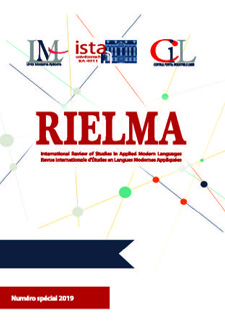La mobilité académique entre la « parenthèse existentielle » et l’intégration socioculturelle
Academic Mobility between the ‘Existential Break’ and Sociocultural Integration
Author(s): Elena PlatonSubject(s): Anthropology, Sociology, Higher Education
Published by: Risoprint
Keywords: academic mobility; integration; interculturality; mediator; sociocultural integration;
Summary/Abstract: Among different types of generic mobility that have been the object of attention for those interested in intercultural communication (touristic, economic, social or political mobilities), mobility for academic purposes occupies an important place. This type of mobility is different not only because of the length of stay, purposes or motivations, but also because it involves a special kind of privilege: unlike the usual immigrant, the student is regarded as less suspicious by the host culture and so he/she is less likely to be marginalized. The phenomenon is caused less by the limited period of stay or the economic benefits he/she brings, but especially by the high cultural capital that is spontaneously attributed to him/her. In order to facilitate the intercultural communication and a rapid integration into the new cultural environment, efforts are being made and some of these efforts are reflected in curricula, others in extracurricular activities. Our research is based on a set of questionnaires applied to medical students in Romania and it shows that their 6 to 10 years period of time spent in this country is regarded more as an existential break with no interest in a sociocultural integration. That is why, based on another set of questionnaires applied to students who attended courses of Romanian language, culture and civilization at Babeș-Bolyai University, our aim is to find out whether we can identify a convergence between the ambition of the host culture to “integrate” the students and the students’ willingness to be integrated and to have a true intercultural experience. In other words, we will look at the difference between ”prescribed” and “lived” experience, analyzing more the ways in which foreign students can be integrated, as well as their specific needs, and less the prescriptions regarding the necessity of their integration.
Journal: Revue Internationale d'Études en Langues Modernes Appliquées
- Issue Year: 12/2019
- Issue No: Special
- Page Range: 45-56
- Page Count: 12
- Language: French

